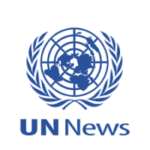Vaccination No Guarantee of Coronavirus Eradication: WHO Officials
COVID19 - CORONAVIRUS, 4 Jan 2021
UN News - TRANSCEND Media Service
In the final World Health Organization (WHO) COVID-19 press conference of the year, on 28 December, senior officials warned that the virus is “not necessarily the big one”, and that there is a real chance of another, more serious pandemic spreading across the world.
28 Dec 2020 –“The next pandemic may be more severe”, said Dr. Mike Ryan, head of the WHO Emergencies Program, adding that we need “get our act together”, because we live on a fragile planet, and in an increasingly complex society. “Let’s honour those we’ve lost by getting better at what we do”.
“Let’s honour those we’ve lost by getting better at what we do.”
— Dr. Mike Ryan, Executive-Director, Emergencies Programme, WHO
The WHO Technical Lead on COVID-19, Dr. Maria van Kerkhove, noted that some of the countries that have coped better with COVID-19 have not necessarily been those with the highest incomes, but those that have lived through other infectious disease outbreaks. Those countries, she said, have used the “muscle memory” of traumatic events to kick their systems into gear, and act to comprehensively tackle the virus.
Dr. van Kerkhove joined Dr. Ryan in calling for the world to be better prepared for the next health crisis, with well-trained health workers able to take full advantage of innovative technology, and informed, engaged citizens capable of keeping themselves safe.

A man wears a face mask and gloves while sitting in a cafe in Glasgow, Scotland.
Unsplash/Ross Sneddon
Understanding new variants
WHO chief Tedros Adhanom Ghebreyesus told journalists that the UN agency is learning new things about the virus every day, including the ability of new variants to spread, make people sick, or have a potential impact on available tests, treatments or vaccines.
Dr. Tedros singled out work taking place in the United Kingdom and South Africa, where scientists are carrying out epidemiologic and laboratory studies, which will guide the agency’s next steps.
“Only if countries are testing effectively will you be able to pick up variants and adjust strategies to cope”, said the WHO chief. “We must ensure that countries are not punished for transparently sharing new scientific findings”.
Thanking the many partners with whom WHO has worked this year, Dr. Tedros looked ahead to 2021, and to the fair and equitable distribution of the treatments and vaccines discovered this year.
Learning to live with COVID-19
However, the officials warned that it may be premature to imagine a world in which COVID-19 has been eradicated.
Guest speaker Professor David Heymann, a disease expert and member of a WHO “surge team” deployed to strengthen the COVID-19 response in South Africa earlier this year, said that we now have the tools at our disposal to save lives, allowing us to learn to live with the virus.
Dr. Ryan agreed that COVID-19 is likely to become endemic in the global population. Vaccinations, he explained, do not guarantee that infectious diseases will be eradicated.
Societies would do better to focus on getting back to full strength, rather than on the “moonshot of eradication”, concluded the senior WHO official.
Tags: Airborne contagion, COVID-19, China, Community, Compassion, Coronavirus, Cuba, Economy, Empathy, Environment, Health, Lockdown, Orthomolecular Medicine, PCR Tests, Pandemic, Public Health, Research, Science, Science and Medicine, Swiss Policy Research, United Nations, WHO
DISCLAIMER: The statements, views and opinions expressed in pieces republished here are solely those of the authors and do not necessarily represent those of TMS. In accordance with title 17 U.S.C. section 107, this material is distributed without profit to those who have expressed a prior interest in receiving the included information for research and educational purposes. TMS has no affiliation whatsoever with the originator of this article nor is TMS endorsed or sponsored by the originator. “GO TO ORIGINAL” links are provided as a convenience to our readers and allow for verification of authenticity. However, as originating pages are often updated by their originating host sites, the versions posted may not match the versions our readers view when clicking the “GO TO ORIGINAL” links. This site contains copyrighted material the use of which has not always been specifically authorized by the copyright owner. We are making such material available in our efforts to advance understanding of environmental, political, human rights, economic, democracy, scientific, and social justice issues, etc. We believe this constitutes a ‘fair use’ of any such copyrighted material as provided for in section 107 of the US Copyright Law. In accordance with Title 17 U.S.C. Section 107, the material on this site is distributed without profit to those who have expressed a prior interest in receiving the included information for research and educational purposes. For more information go to: http://www.law.cornell.edu/uscode/17/107.shtml. If you wish to use copyrighted material from this site for purposes of your own that go beyond ‘fair use’, you must obtain permission from the copyright owner.
Read more
Click here to go to the current weekly digest or pick another article:
COVID19 - CORONAVIRUS:
